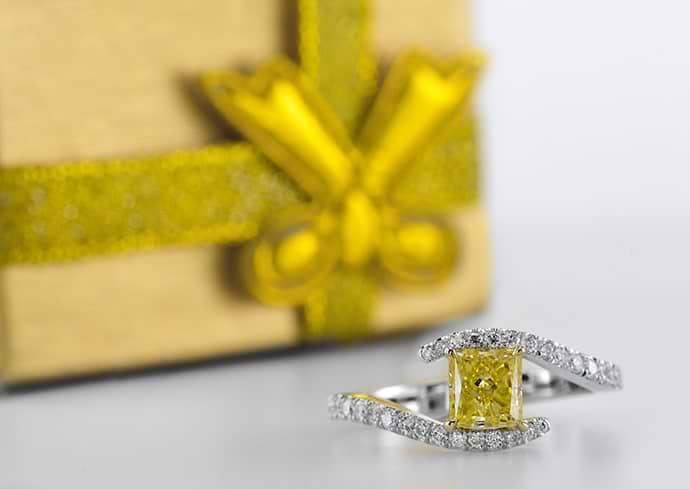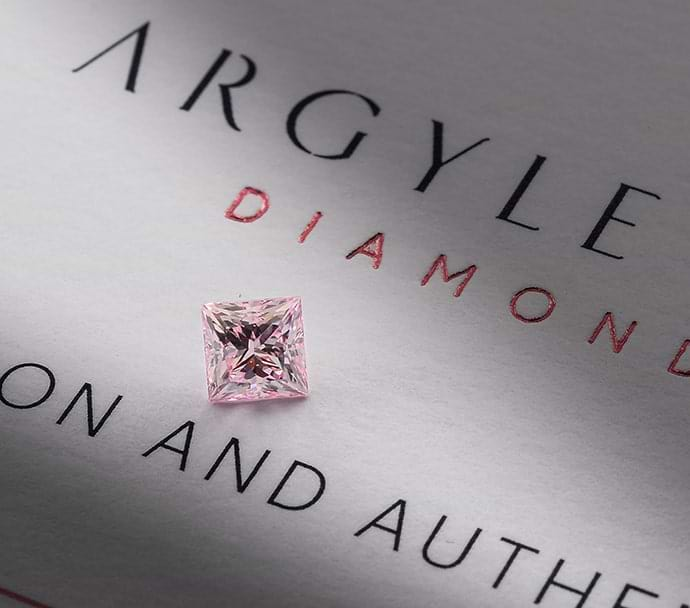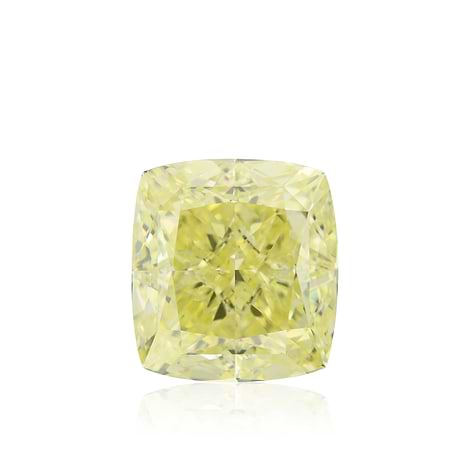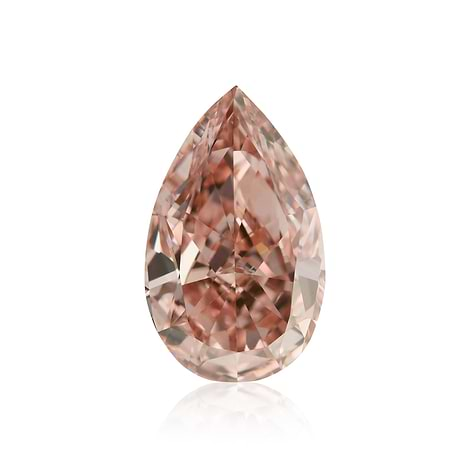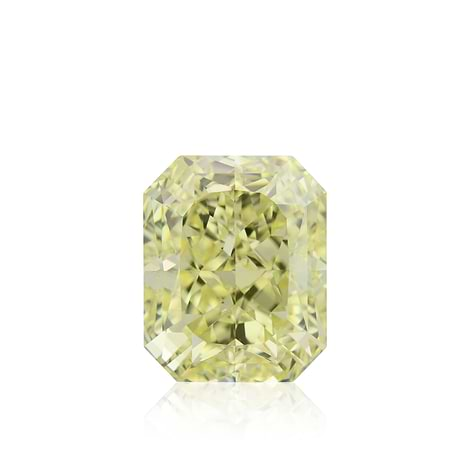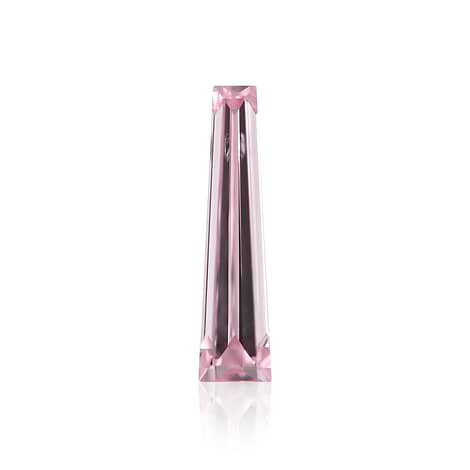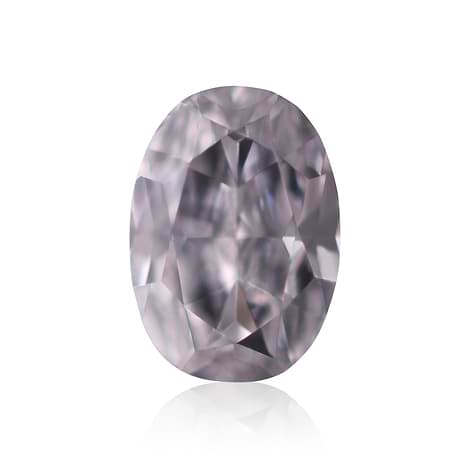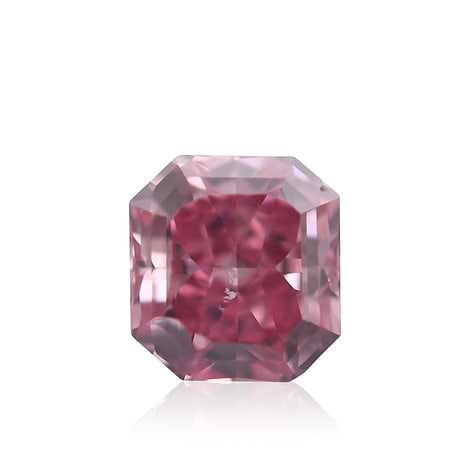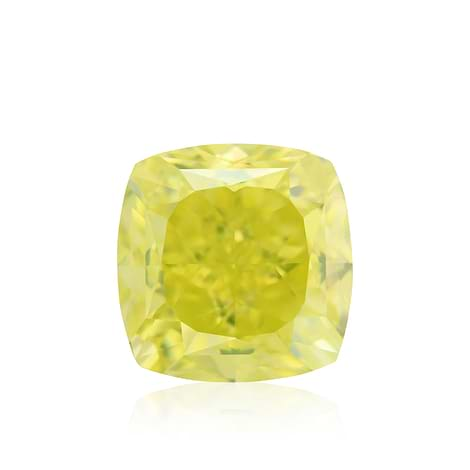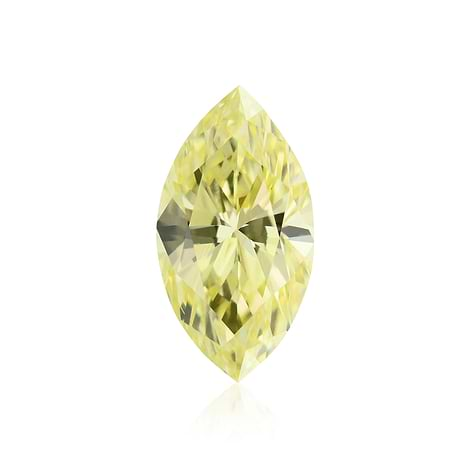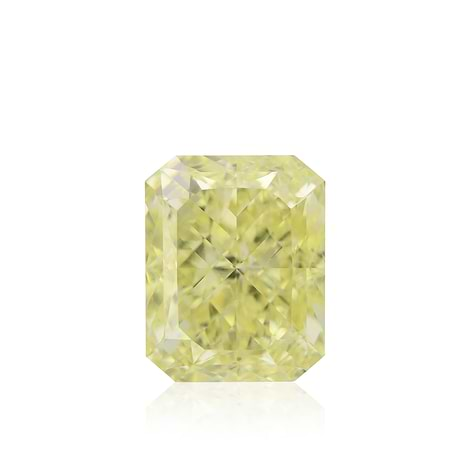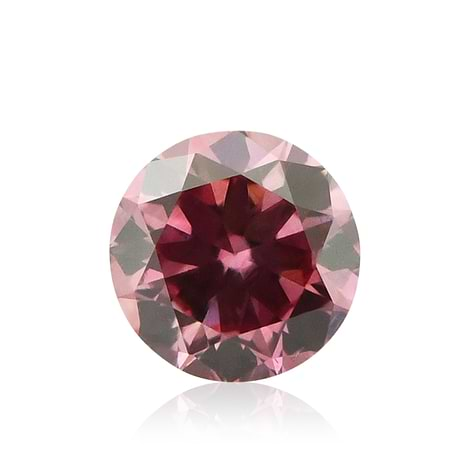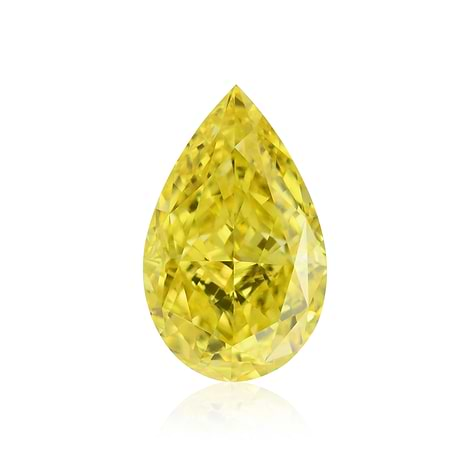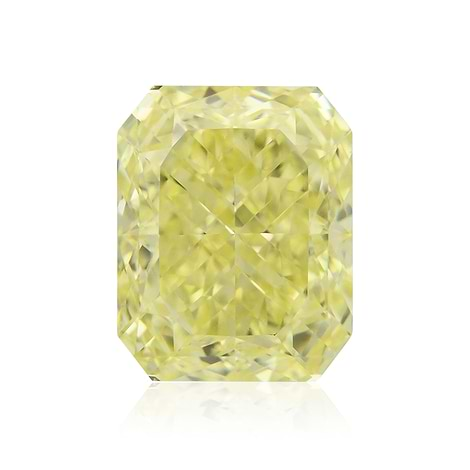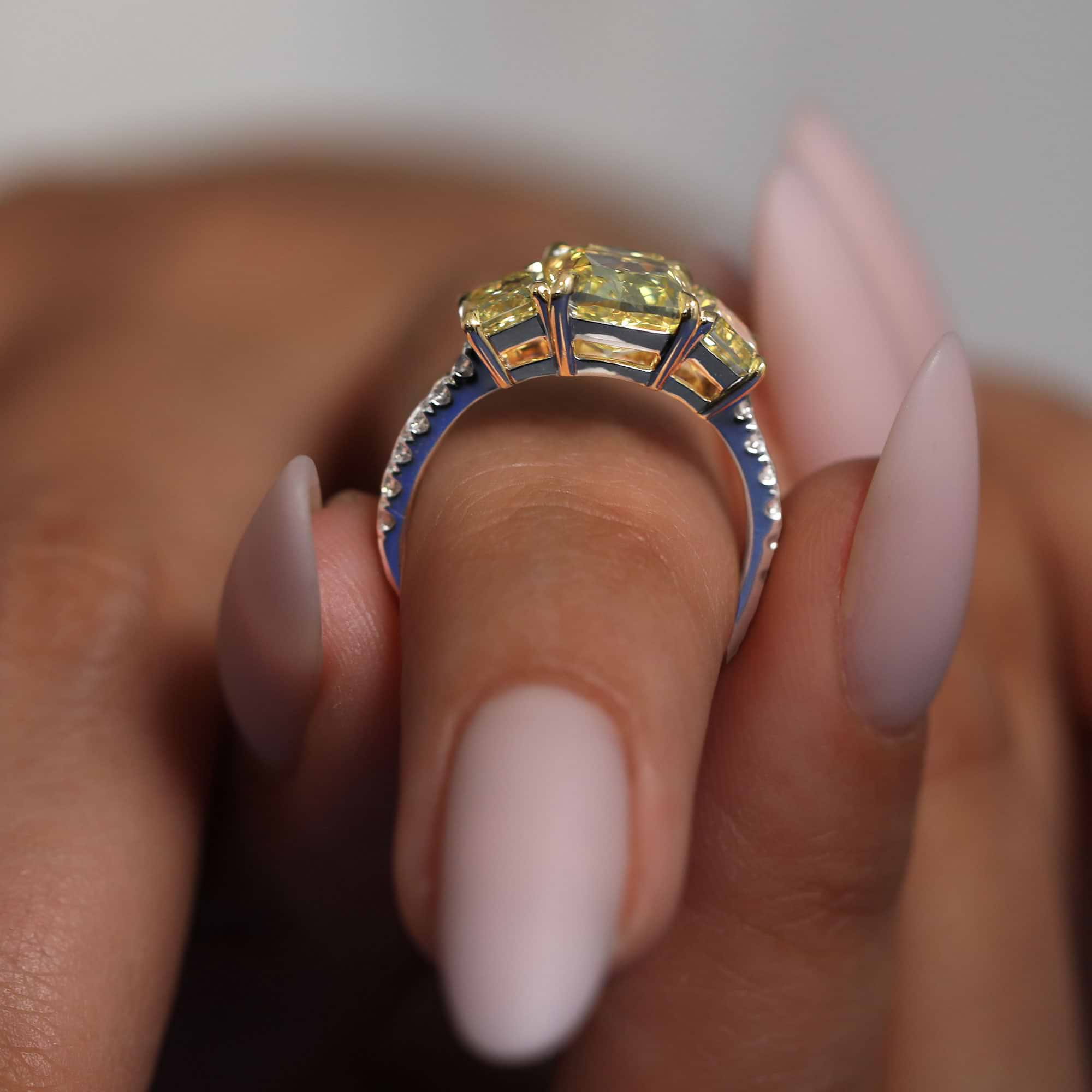Anyone in the market for an engagement ring has surely heard the term “princess cut” at some point, but may not have necessarily understood what it meant. The princess cut refers to one of the many shapes diamonds are cut into. In fact, it is one of the more popular shapes, right after the one and only round brilliant. (Read about why round diamonds are pricier than princess diamonds.) Interestingly enough, this fancy shape was only introduced a few decades ago but has since become a favorite.
A gift fit for a princess! A 1.15 carat fancy intense yellow princess-cut diamond
The combination of the brilliant cut and the modified square-ish shape gives this diamond a bit more class and glamor while preserving a great deal of the brilliant sparkle that is unique to the round brilliant.
“Princess cut” once referred to an entirely different shape, one that was also known as the “profile cut,” which was designed by Arpad Nagy in 1961. In 1979 the princess name was later given to another shape by Ygal Perlman, Betzalel Ambar, and Israel Itzkowitz in Israel. This shape was quite different than the original shape with the same name and also shared similarities with the popular round brilliant. Let us take a look at this intriguing shape, what makes it desirable, and some of the less attractive points about this gorgeous cut.
Fancy Intense Purplish Pink Princess & Fancy Colorless Diamond Earrings, SKU 217989 (2.37Ct TW) from LEIBISH
The Profile Cut – The Original Princess Cut
In 1961 a London diamond cutter by the name of Arpad Nagy created a diamond shape known as the “profile cut,” which he also referred to as the “princess cut.” This shape possessed 58 facets in contrast to the 49 facets of the princess diamond that we know today. Another diamond shape that the modern princess diamond can be traced back to is the Barion cut, which was developed in 1971. Basil Watermeyer patented this shape. It boasted extremely symmetrical lines that proved quite difficult to cut. A similar shape called the Quadrillion was patented in 1979. This shape only had 48 facets in contrast to the Barion’s 80 facets.
The New and Improved Princess Shape
While the back-story to the princess shapes includes similar shapes that preceded it as well as shapes that bore the same name, the modern day princess shape came to be after searching for the perfect diamond shape that women were really after. That led to the creation of the 49-faceted diamond, whose name was made popular by Yigal Perlman, Betzalel Ambar, and Israel Itzkowitz. The square-ish shape that princess-shaped diamonds often have, its sharp edges, and pyramid profile make it a majestic alternative to the round brilliant. Given the fact that less of the rough diamond is wasted when cutting this shape, it is a more economic choice than the round diamond, which can utilize as little as 50-40% of the rough stone.
The elegant beauty of a 0.54 carat fancy intense purplish pink diamond princess shape, Argyle diamond
Implications of a Princess Diamond
The delightful appearance of this rather new shape provides one with a modern fresh look while maintaining much of a brilliant diamond’s shine. However, we did mention there are some somewhat negative points about this stone, and here they are. Among all the different shapes, the princess cut is among the most prone to snag your cloths. In addition, as they sharp edges protrude they can be at risk for chipping. Now, these shouldn’t be reasons not to invest in this stone, but just make sure you know what you are getting into. People aren’t really aware that there is a need to care for the diamond jewelry they wear and princess cut diamond demand good care. You will still get more for your money with a princess diamond, as a 1-carat princess cut diamond is equivalent in price to a 0.80-carat round diamond, more or less. As a result of the cut the stone appears quite large and again possesses the brilliance people look for when shopping for a piece of diamond jewelry.
Princess cut diamonds look extremely regal when set in engagement rings. Not to mention, they also look spectacular in earring settings, pendant settings, and bracelet settings. When considering a stone for an engagement ring, an additional stone for your existing ring, or a stone to create an entirely new piece, consider the princess cut diamond as a strong contender. It has much to offer with very few downsides.
